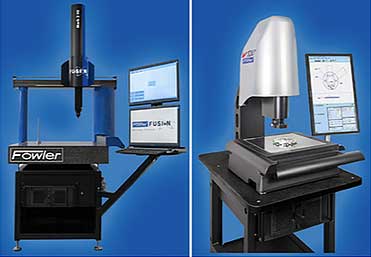The importance of Calibration and how it affects your CMM

Ever wonder how good your CMM program is? Or have you sent your parts out to a third party and they get completely different numbers then you did? Or worse, you inspect the part three different ways at your company and all methods produce different results. You are not alone and in this series of blog articles, Summit would like to help you understand why different programs and different measurement methods produce different results. To understand this, we first must take a step back and talk about MSA (Measurement System Analysis) and calibration. For the focus of this article we will apply these concepts to the CMM, but these are broader concepts and they can and should be applied to all measuring devices.
Let’s start by defining each of these terms and break down what that means:
Calibration:
“In measurement technology and metrology, calibration is the comparison of measurement values delivered by a device under test with those of a calibration standard of known accuracy.”
In the CMM world, Calibration is used to set the accuracy of the CMM. This is done by running a set of known standards in various places throughout the volume of the CMM and ensuring the results are acceptable back to the company’s Quality Policy. This last piece is key. All CMM manufacturers will provide their product with a volumetric accuracy, but it is up to the company to specify what accuracy they need to ensure they are making good product. It is also up to the company to provide the needed interval for this calibration. Most companies will defer to the manufacturer and provide acceptance criteria to the machine specification. They will also defer to their calibration company on the frequency needed for their machine. As a standard, Summit recommends that the CMM be calibrated yearly, however every facility and machine will be different and we will gladly help any customer decide on a calibration frequency with some risk-based exercises.
So why is calibration essential when we are talking about how to verify if a CMM program is good? Well, calibration is the first step in the process. The same program could be run on multiple machines and produce widely different results depending on the accuracy of the machine. We have seen this in some facilities where they get a new machine and the new machine is measuring differently then the old CMM. If this is a situation you are in, the first place to investigate is the machine, not the program. It could be from lack of calibration, lack of PM (preventive maintenance), or a mechanical fault in the machine. The takeaway from this is having a good PM program and regular calibration helps avoid any machine issues. This in turn limits some possible sources of error and variation when it comes to evaluating a CMM program.
And that statement above is what Quality control is all about. Limiting variation and eliminating sources of error.
Summit is a ISO 17025-2 certified CMM calibration company. Please check out our services page for more information.
